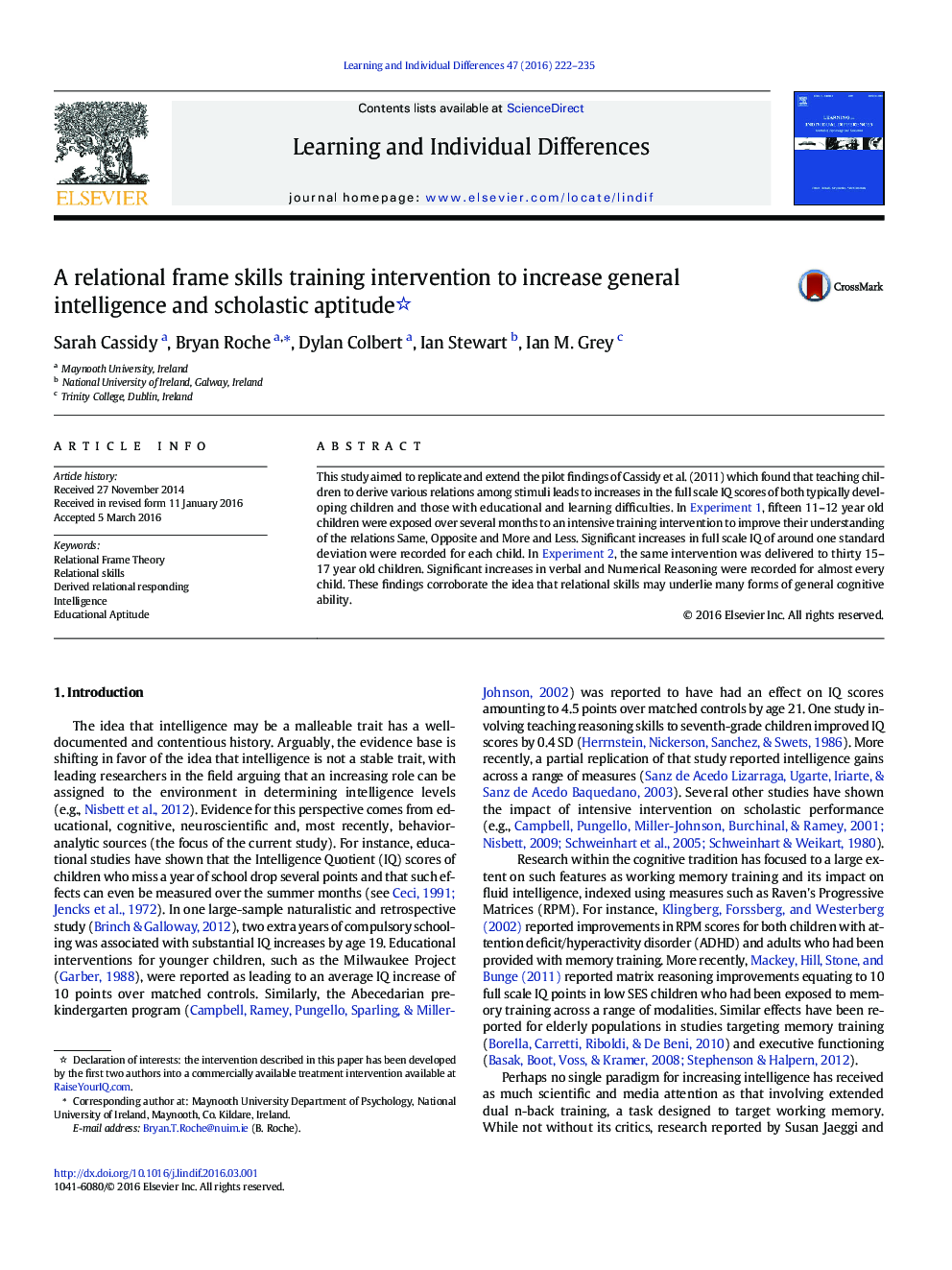| Article ID | Journal | Published Year | Pages | File Type |
|---|---|---|---|---|
| 364605 | Learning and Individual Differences | 2016 | 14 Pages |
•Relational Frame Theory was tested as a novel intervention approach for general intellectual ability and educational aptitude.•Significant IQ increases from pre- to post-intervention, of around one standard deviation or more were achieved in all cases.•The magnitude of IQ increases significantly outstrips increases associated with practice and maturation.•Significant increases in verbal, numerical and educational aptitude were observed from pre to post-intervention.•These findings corroborate and extend those of previous research regarding the effects of relational skills training on intellectual ability.
This study aimed to replicate and extend the pilot findings of Cassidy et al. (2011) which found that teaching children to derive various relations among stimuli leads to increases in the full scale IQ scores of both typically developing children and those with educational and learning difficulties. In Experiment 1, fifteen 11–12 year old children were exposed over several months to an intensive training intervention to improve their understanding of the relations Same, Opposite and More and Less. Significant increases in full scale IQ of around one standard deviation were recorded for each child. In Experiment 2, the same intervention was delivered to thirty 15–17 year old children. Significant increases in verbal and Numerical Reasoning were recorded for almost every child. These findings corroborate the idea that relational skills may underlie many forms of general cognitive ability.
Graphical abstractFigure optionsDownload full-size imageDownload as PowerPoint slide
